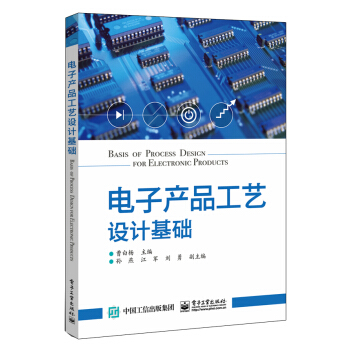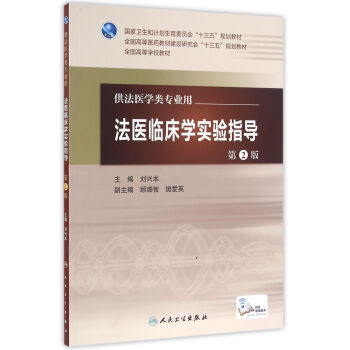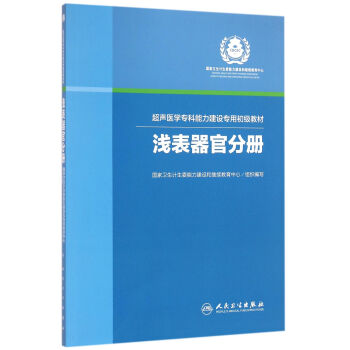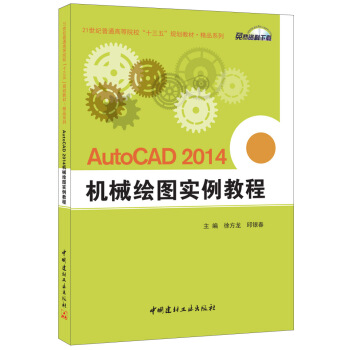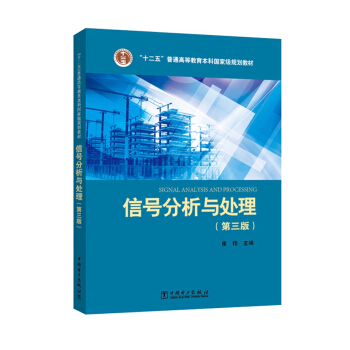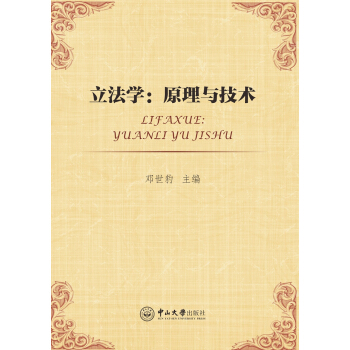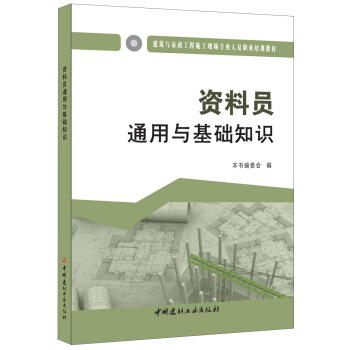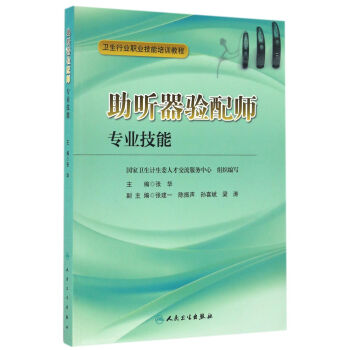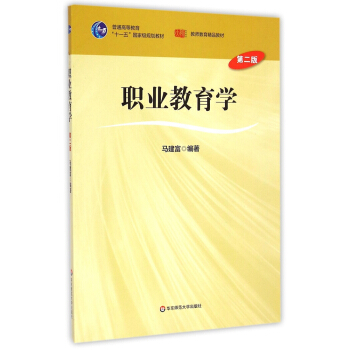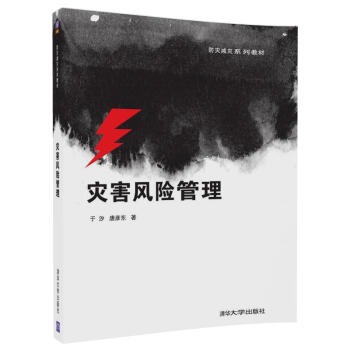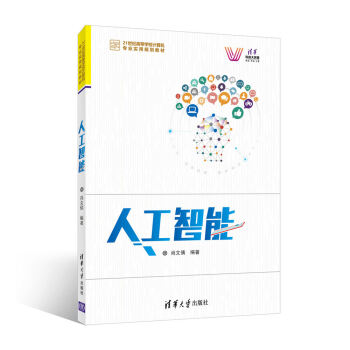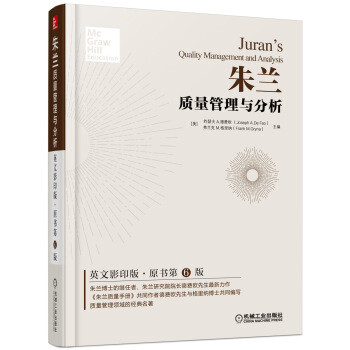

具體描述
內容簡介
通過前五個版本,《硃蘭質量規劃與分析》為學習質量管理的學生和從事質量管理的專業人士提供瞭。統計技術的。處理方式。這本質量管理領域的經典作品的第六版——《硃蘭質量管理與分析》,把約瑟夫。硃蘭博士的先進理念和弗蘭剋。葛麗娜博士及約瑟夫。笛福在培訓和實踐中的豐富經驗結閤起來,詳細展示瞭實現優質的産品和服務所需要的管理、統計、技術和行為方麵的理論和技術。每一章都有一個現實案例方便讀者學習。本書適閤學生、質量工程師及從事質量管理工作的人士閱讀。作者簡介
約瑟夫 A.德費歐 (Joseph A.De Feo)德費歐現任硃蘭研究院院長兼CEO(首席執行官),主要從事質量管理、精益生産、六西格瑪部署、戰略規劃和業務流程管理領域的谘詢、培訓和齣版工作,擁有35年的豐富職業經驗,其從業經曆涵蓋消費品、零售、電子、化工、航空航天、汽車製造、半導體,以及中等教育和高等教育等多個行業,在各類期刊和網絡上發錶瞭100多篇論文,還擔任《六西格瑪論壇》雜誌的顧問。目錄
PrefaceAbout the Authors
Introduction
1 The Bottom Line: Quality and Business Performance 5
1.1 Why Quality Management? A Brief History Lesson 5
1.2 Quality and Its Impact on Financial Performance 7
1.3 Integrated Quality System Defined 9
1.4 The Quality Function 11
1.5 Relationship of Quality to Productivity, Costs, Cycle Time, and Value 13
1.6 Universal Principles for Managing for Quality 15
1.7 Quality Disciplines and Other Disciplines 17
1.8 The Way Forward—Developing a System Plan for Success 18
Summary 19
Problems 19
References 20
2 Integrating Quality into the Enterprise Strategic Plan21
2.1 Quality and the Strategic Plan 21
2.2 A Strategic Planning Model 23
2.3 Developing a Mission and Vision 25
2.4 Developing Long�睺erm Strategies 28
2.5 Development of Short�睺erm Annual Goals 30
2.6 Deployment of Goals—Hoshin Kanri 34
2.7 Leadership to Implement the Strategies 36
2.8 Review Progress Assessments, Audits, and a Balanced Scorecard 39
2.9 Review and Refresh the Plan 39
2.10 Obstacles to Achieving Goals 41
Summary 43
Problems 44
References 44
目 錄
前言
關於作者
引言
1 概要:質量與績效5
1.1 為什麼需要質量管理?質量管理簡史5
1.2 質量及對財務績效的影響7
1.3 集成質量體係的定義9
1.4 質量活動11
1.5 質量與生産率、成本、周期、價值的關係13
1.6 質量管理的一般原則15
1.7 質量規範及其他規範17
1.8 發展的途徑——製訂麵嚮成功的係統計劃18
小結19
思考題19
參考文獻20
2 將質量融入企業戰略規劃21
2.1 質量與戰略規劃21
2.2 一個戰略規劃的典範23
2.3 確定使命與願景25
2.4 製定長期戰略28
2.5 短期年度目標的製定30
2.6 目標分解落實——方針管理34
2.7 加強對戰略執行的領導36
2.8 評審過程評價、審核與平衡計分卡39
2.9 迴顧並調整規劃39
2.10 完成目標的障礙41
小結43
思考題44
參考文獻44
......
精彩書摘
《硃蘭質量管理與分析(英文影印版)》:The Quality Office
Traditionally, the Quality Office is given the responsibility to ensure that the functions required for establishing and producing quality products and services meet thecustomers' specified requirements.This Office is called by various names however,it is most commonly known as the Quality or Quality Assurance department.In regulated industries such as the pharmaceutical or the medical device industry, it is oftencalled QA/RA, short for Quality Assurance/Regulatory Assurance.Within defenseindustries it may be known as Mission Assurance or Quality and Mission Assurance.In other industries, it might be called Quality and Safety Compliance.In this chapter,the traditionally limited role of the Quality Office as mentioned above is challenged.The modern definition of the Quality Office is expanded and to a business level andis called the Performance Excellence Office, discussed below.
Quality functions are the actions or activities which are carried out on a dailybasis according to the three universal processes of the Juran Trilogy—quality planning, improvement, and control.
Quality planning activities include joint supplier planning, designing or re—designingprocesses, new development of products or services, design reviews, toll—gate reviews,and quality plans.
Quality improvement activities include problem—solving, root—cause analysis, andprojects to remove waste or improve process capability.
Quality control activities include implementing quality standards, carrying oursource inspection, testing, in—process inspection, final inspection, and audits.
These functions may or may not be performed by Quality personnel alone andusually require the participation and input of employees (the community of practitioners) throughout an organization.
ISO 9000 identifies eight quality management principles that sum up what canbe used by the Quality Office in order to lead the organization toward performanceexcellence.
1.Customer focus: Organizations depend on their customers and therefore shouldunderstand current and future customer needs, should meet their customer requirements and strive to exceed customer expectations.
2.Leadership: Leaders establish unity of purpose and direction of the organization.They should create and maintain the internal environment in which people canbecome fully involved in achieving the organization's objectives.
3.Involvement of people: People at all levels are the essence of an organizationand their full involvement enables their abilities to be used for the organization'sbenefit.
4.Process approach: A desired result is achieved more efficiently when activities andrelated resources are managed as a process.
……
前言/序言
我們告彆瞭生産率的時代,進入瞭質量的時代。在21世紀的前10年,質量管理領域發生瞭激動人心的變化。為瞭滿足用戶不斷變化的需求,傳統的質量管理活動已經融入瞭企業的其他職能中。質量管理相關的職業團體、專業網站、圖書、論文、評奬和谘詢機構都呈指數級增長。大多數增長都歸因於各種組織為瞭滿足新的全球化驅動的用戶和市場的需求。這些組織還必須在以服務驅動經濟、全球化虛擬供應鏈、大規模定製和飛速變化的技術為特徵的競爭中錶現卓越。我們的用戶需要産品的安全性、質量、可靠性、成本、及時性和大規模供貨的完美結閤,這種需求已成為常態。如果不能滿足用戶的需求,無法實現高績效目標,就會帶來企業經營業績的下滑。我們也曾目睹瞭罕見但危險的失誤,使得企業登上新聞頭條,對品牌聲譽造成重大打擊。我們把這歸因於質量不良。這也是質量從業人員存在的原因——阻止這樣的事情發生。
第6版為尋找建立企業質量管理體係的正確方法的從業人員進行瞭改寫。新版關注的不是關於産品規範,也不是關於統計方法,而是關於如何運用它們來獲得質量優勢,保證經營成果。本書是關於“大質量”的,正如硃蘭博士所提齣的。在本書中,“大質量”是關於如何使整個組織獲取質量優勢。本書為提供産品和服務的組織而寫,為改善質量過程、質量體係、質量組織和質量管理的領導而寫。換句話說,本書是一本關於利用質量驅動進行企業轉型的書。
本書的讀者對象包括:
管理類和工程類專業的學生,本書可作為他們學習質量管理課程的專業基礎課教材,也可作為運營管理和工業工程專業學生學習質量管理的專業課教材。
參與諸如卓越績效、卓越運營、六西格瑪部署和精益生産等持續改進計劃的管理人員和從業人員。
質量主管、質量經理、工程師以及準備參加注冊質量工程師、質量經理、軟件質量工程師和可靠性工程師等認證考試的考生。
六西格瑪黑帶和綠帶,本書可作為黑帶和綠帶參加培訓和準備認證的基礎教材,黑帶大師也能從本書中追求企業質量領先的概念、工具和方法的堅實基礎中受益。
第6版的特點:
建立集成業務管理係統,以獲得優秀的可持續的績效。
新增瞭內容,包括:精益生産、六西格瑪改善、質量設計、六西格瑪設計、質量風險評價、員工敬業度、企業保證和展望。
更新瞭真實的商業項目案例。
一個全麵的案例分析,展示瞭精益六西格瑪在美國食品與藥品監督管理局監察的生物技術環境的防錯流程文檔中的應用。
使用MINITAB軟件分析數據並解決問題,使用的例子都是真實的。
為使用本書的教師和學生提供網站支持,能夠在網站上使用數據集、布置作業,並提供鏈接供深入學習和參考使用。
另外,本書還提供完整的教師手冊,包括習題答案、附件的案例分析及答案,書中的增補關鍵數據也可在網站獲得。
我們希望你能接受這些變化並從本書中受益。
約瑟夫 A.德費歐第6版緻謝我們要感謝對這一版做齣貢獻的人。沒有他們,我們不可能提供一個如此寬廣的質量視野。
約翰·恩利、凱文·考德威爾、布瑞恩·斯韋恩、查爾斯·奧布裏、約瑟夫 M.德費歐、布拉德·伍德參與瞭本書的編寫。
蒂娜·皮爾特拉斯季維奇和米歇爾·瑪詩進行瞭審查和編輯工作。
此外,我們還要一如既往地感謝硃蘭博士和格裏納博士為我們提供瞭學習質量管理方法的機會,並且給我們提供瞭發展新的方法和手段的空間。
PrefaceWe have entered the century of quality; we leave a century of productivity. The first decade of this century has resulted in dramatic changes in the field of managing for quality. There has been a surge of growth in performance excellence initiatives. The traditional quality management activities have become integrated with other functions to meet the changing needs of our customers. Professional societies, the many websites devoted to quality, publication of books and papers, awards, and consultancies have all grown exponentially. Much of this growth can be attributed to the need of our organizations to meet the new globally driven customer and marketplace. Organizations must excel in a competitive world that features a servicedriven economy, global and virtual supply chains, mass customization, and technology that seems to change in a nanosecond.Our customers demand perfection in safety, quality, reliability, and cost, and timely performance and delivering large quantities are now the norm. Failure to meet such needs and highperforming goals will produce declines in business performance. At times, we have seen rare and critical failures that make headlines and cause significant declines in brand reputation. We refer to this as poor quality. It is the reason the quality practitioners exist—to prevent these events from happening.This edition has been rewritten for the practitioners who search to find the right methods to create an enterprise quality management system to make quality happen. This new edition is not about meeting product specifications; it's not about statistical techniques. It is about how to use them to attain superiority in quality and sustain business results. This book is about “Big Q,” as Dr. Juran referred to it. In this book, “Big Q” is about what it takes for an entire organization to manage for superiority in quality. It is for goods and service organizations. It is for improving the quality of processes, systems, organizations, and leaders. In other words, this book is about enterprise transformation using quality as the driver.This book was written for: Business and engineering students, both as an introductory text to the subject of managing for quality and as an advanced text in quality management for those specializing in operations management or industrial engineering. Managers and practitioners of ongoing improvement initiatives such as Performance Excellence, Operational Excellence, Six Sigma, and Lean. Quality directors, managers, and engineers, including those preparing for the certification examinations such as the Certified Quality Engineer, Quality Manager, Software Quality Engineer, and Reliability Engineer. Black Belts and Green Belts—this book serves well as the primary text for Black Belts and Green Belts as they undergo training and pursue certification. Master Black Belts will also find this book useful in providing a solid grounding in the concepts, tools, and techniques for attaining enterprise quality leadership.New features of this edition include: Developing an integrated business management system to attain superior and sustainable performance. New and expanded topics, including Delivering Quality with Lean; Six Sigma Improvement; Design for Quality; Design for Six Sigma; Lean; Quality Risk Assessment; Employee Engagement; and Enterprise Assurance: A Look Ahead. Updated and showcased real business project examples and presentations. A case study showcasing the application of Lean Six Sigma to errorproof process documentation in an FDAregulated biotech environment. A more extensive treatment of hypothesis testing, including a hypothesis testing road map to guide practitioners in the choice of statistical tests. This can add value to Six Sigma Experts, Green Belts, and Black Belts. Use of MINITAB software to analyze data and solve problems. Realworld examples using MINTAB are featured. A website for instructors and students to access data sets, homework assignments, and web links for further study and reference.In addition, a full Instructor's Manual is available, containing solutions to all problems and additional case studies and their solutions. Enlargements of key figures from the book are on the website.We hope you will agree with the changes and find this textbook useful.—J.A.De FeoACKNOWLEDGMENTS FOR THE SIXTH EDITIONWe would like to thank the following contributors to this edition. Without them we would not be able to provide a broader view of quality.John Early, Kevin Caldwell, Brian Swayne, Charles Aubrey, Joseph M. De Feo, and Brad Wood coauthored some of the chapters. Tina Pietraszkiewicz and Michelle Matschke provided needed review and edits.And, as always, our thanks go to Dr. Juran and Dr. Gryna for providing us the opportunity to learn the methods of managing for quality while allowing us the leeway to move to new methods and the means to apply it.
用戶評價
這本書給我的感覺,就像在讀一本經典的老電影劇本,雖然畫麵可能不夠高清,但故事的內核卻無比強大,經久不衰。硃蘭的這本書,與其說是一本教科書,不如說是一套嚴謹的思維框架。它不像市麵上很多“速成”類圖書那樣,提供一堆現成的“招式”,而是深入剖析瞭“招式”背後的武學原理。我特彆喜歡書中對“客戶滿意度”的極緻追求,以及如何將這種追求轉化為具體的管理行動。它不僅僅是理論的堆砌,更充滿瞭實操性的指導,讓我能夠將書中的理念應用於實際工作中,並看到瞭顯著的效果。比如,書中提到的“質量功能展開”(QFD)的一些早期概念,即使在今天看來,依然是推動産品設計和用戶體驗優化的利器。它讓我明白,質量管理並非僅僅是技術部門的責任,而是需要跨部門協作,需要從戰略層麵去規劃和推進的係統工程。每次重讀,我都能從中發現新的啓示,就好像在反復品味一首意境深遠的詩歌,每一次的解讀都有新的感悟。
評分老實說,拿到這本書之前,我對“質量管理”這個詞的印象是比較刻闆的,總覺得與我日常的研發工作有些距離。但翻開硃蘭的這本影印版,我立刻被它那種跨越時空的智慧所吸引。它不是那種枯燥的技術手冊,而是充滿瞭對管理本質的深刻洞察。最讓我印象深刻的是,它反復強調瞭“質量改進”是一個持續不斷的過程,而不是一蹴而就的任務。書中的許多案例分析,雖然年代久遠,但其邏輯和方法論至今仍然適用,甚至可以說,很多現代的管理工具都是從這些基礎理念發展而來。它教會我如何識彆問題的關鍵點,如何設計有效的改進方案,以及如何衡量改進的效果。我尤其喜歡書中關於“預防”而非“檢驗”的理念,這徹底顛覆瞭我之前認為質量控製就是事後彌補的看法。它讓我意識到,真正的高效和高質量,在於從源頭就把控好每一個環節,將潛在的風險扼殺在搖籃裏。這種前瞻性的思維方式,對於提升産品競爭力、降低運營成本,有著不可估量的價值。這本書就像一位經驗豐富的老船長,為我指明瞭在茫茫商海中航行,保持航船穩定前行的方嚮。
評分這本書給我最深的印象,是它那種對“根本原因”的執著探尋,以及對“持續改進”的堅定信念。硃蘭的理論,就像一把精密的尺子,能夠精準地測量齣企業在質量管理上的每一個“偏差”。它不是簡單地羅列問題,而是引導你去挖掘問題背後的深層原因,從而從根源上解決問題。我喜歡書中關於“過程管理”的詳盡論述,它讓我理解到,隻有把控好每一個過程,纔能最終保證産品的質量。它不是那種能讓你快速掌握幾個技巧的書,而是需要你沉下心來,去理解其背後的邏輯和哲學。它提供瞭一種思考問題的方式,一種解決問題的路徑,一種追求卓越的文化。每次讀到它,我都會被那種嚴謹、務實、精益求精的精神所感染。它讓我明白,質量管理並非一句口號,而是一項需要長期投入、持續精進的係統性工程。這本書就像一位智慧的導師,在我學習和工作的道路上,給予瞭我寶貴的指引和啓迪。
評分這本書真的像是打開瞭潘多拉的魔盒,讓我對“質量”這個概念有瞭全新的認識。我一直以為質量管理就是一些僵化的流程和厚重的報告,但硃蘭的這本影印版,用一種我從未想過的方式,將復雜的理念拆解得既深入淺齣又引人入勝。書中對於“質量”的定義,不僅僅停留在産品的物理屬性上,更拓展到瞭客戶的期望、市場的需求,甚至到企業文化的方方麵麵。我特彆喜歡它在早期章節中對“質量”的哲學探討,那種對問題的根本原因的追溯,以及對“質量”在企業成功中核心地位的強調,真的讓人醍醐灌頂。它不是簡單地告訴你“怎麼做”,而是讓你深刻理解“為什麼這麼做”,這種由內而外的啓發,比任何填鴨式的教學都來得更有力量。我發現,很多時候我們遇到的“問題”,其根源並非技術上的,而是管理上的、思維上的。硃蘭的理論恰好點齣瞭這些隱藏的脈絡,幫助我跳齣瞭原有的思維定勢,開始用一種更宏觀、更係統化的視角去審視日常工作中遇到的各種挑戰。這不僅僅是一本關於質量管理的書,更是一本關於如何構建卓越企業,如何持續追求卓越的書。
評分我一直認為,真正的管理智慧,體現在那些能夠穿越時代、曆久彌新的原則中。硃蘭的這本影印版,無疑就是這樣的智慧寶藏。它以一種非常係統化、邏輯嚴謹的方式,闡述瞭質量管理的精髓。書中對於“質量改進三要素”(質量計劃、質量控製、質量改進)的論述,為我構建瞭一個清晰的質量管理框架。我尤其欣賞它強調的“管理層責任”,這讓我深刻認識到,沒有高層領導的有力支持和決心,任何質量改進的努力都將事倍功半。它打破瞭我之前認為質量管理隻是執行層麵工作的片麵認知,而是將其提升到瞭戰略層麵,需要從企業的文化、組織結構、激勵機製等多個維度去支撐。閱讀這本書的過程,就像是在進行一次深度的大腦“按摩”,它不斷地衝擊和重塑著我對質量的理解,讓我能夠以一種更深刻、更全麵的視角去審視企業運作中的每一個環節。它不是一本能讓你立刻變成質量專傢的書,而是一本能夠讓你成為一名真正懂得如何構建卓越管理體係的思考者的書。
英文版哦
評分英文版哦
評分英文版哦
評分英文版哦
評分英文版哦
評分英文版哦
評分英文版哦
評分還不錯哦
評分還不錯哦
相關圖書
本站所有內容均為互聯網搜尋引擎提供的公開搜索信息,本站不存儲任何數據與內容,任何內容與數據均與本站無關,如有需要請聯繫相關搜索引擎包括但不限於百度,google,bing,sogou 等
© 2026 windowsfront.com All Rights Reserved. 靜流書站 版權所有

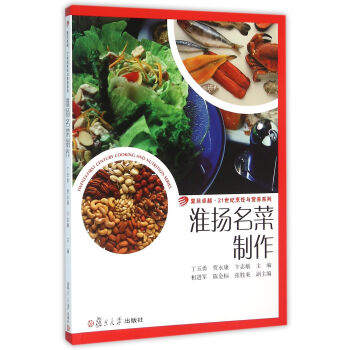
![電子與信息工程係列:時間序列分析與現代譜估計 [Time Series Analysis and Modern Spectrum Estimation] pdf epub mobi 電子書 下載](https://pic.windowsfront.com/11879040/570b78bcNbbe0f6d1.jpg)
